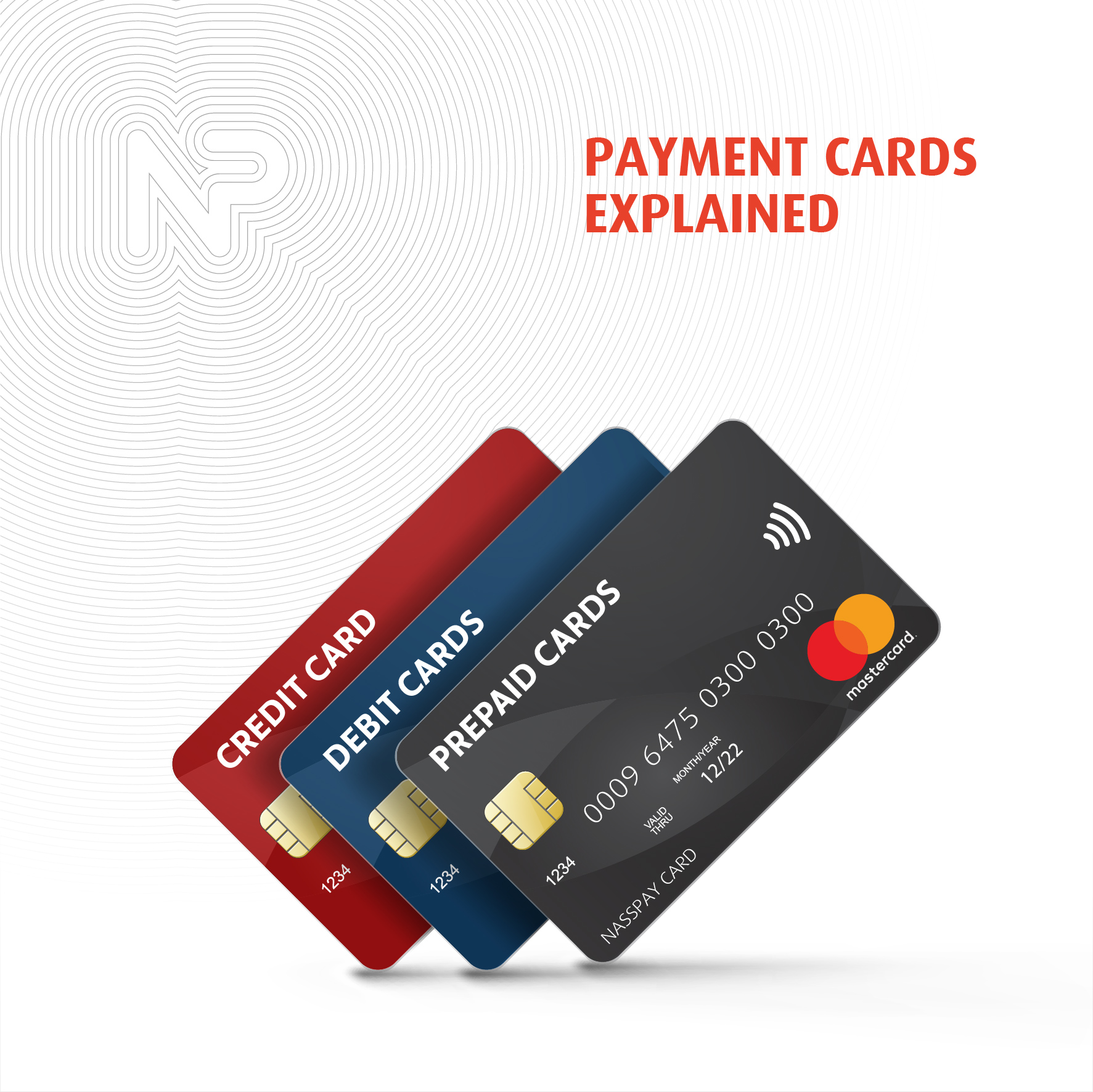PAYMENT CARDS EXPLAINED
WHAT IS A PAYMENT CARD?
Payment cards are designed to facilitate transactions electronically and reduce reliance on using cash. It is easier and safer than carrying cash, especially during travels.
WHAT ARE THE DIFFERENT TYPES OF PAYMENT CARDS?
1) Debit Card – is a payment card connected to a bank account and you will need to have the funds available before making a purchase. Once a purchase is made immediately the money is transferred from the cardholder’s bank to the merchant.
2) Credit Card – is a payment card that allows you to borrow money against a line of credit from your bank or an independent financial institution. You can use the credit card to make purchases and be billed for it after by your issuer (bank or non-banking financial institution).
This means you do not have to have the needed cash in the card before making a purchase. You have a month to pay off the balance free of charge or pay in instalments but with an interest fee. The amount of interest fee that may apply varies between one issuer to another.
The amount of credit line you can be offered by a card issuer is usually determined by your “CREDIT SCORE”.
A credit score is based on a number of categories depending on the regulation and system of your country’s financial sector. These categories often include;
- Payment history – basically a record of whether you’ve paid your bills (telephone, water, gas, electricity etc.) on time or not.
- The Amount you owe – how much money you already owe on existing credit cards or loans.
- Usage ratio of existing credit – if you already have one credit card how much of the limit are you using and how often. For instance, if you have a credit card that has a limit of $5,000 and you have used almost $4,500 and applying for another credit card then the lender may decline your request or offer you only a small amount of credit because your profile will be viewed as someone who will not be able to pay back or miss regular instalment
- Length of history – this is determined by the average age/duration you hold a bank account or accounts and how long it has been since you have used those bank accounts.
- Rate of opening new bank accounts and available credits – lenders want to know how often you open a new bank account, what existing credits you have and how you manage them. For instance, if you have many bank accounts with different institutions and already owe money for car, house and/or studying and cannot manage them efficiently, this will affect your credit score or the amount of money or credit line you can be given for a credit card.
- Other factors will include your salary, homeownership and length at a permanent address.
To date, the concept of CREDIT SCORE is not available in Iraq, due to not having a unified or connected information sharing system to identify the above factors. Therefore, the banks are only able to provide credit cards and the amount of credit line based on a guarantee of physical cash or based on the customer’s known role or personality within the public or private sector.
3) Prepaid Card – is a payment card that is not linked to a bank account but it looks and is accepted the same as any other payment card as it has the same card network logo such as Mastercard, Visa, American Express or Discover. Card networks are financial services companies that enable, processes and settles payments between card-issuing banks and merchant banks worldwide.
The amount of money you can spend on a prepaid card is the total balance or cash you have preloaded in advance. This means there is no chance of going over your balance and risk being charged an interest rate as it can happen with a Debit and Credit cards
Furthermore, unlike both debit and credit card every individual can sign up for a prepaid card with one form of identification. Making it an ideal product for unbanked individuals who are unable to meet the banks extensive KYC (Know Your Customer) requirements which often include more than two forms of official ID, proof of permanent address, employment confirmation, salary information and so on. Other people opt for a prepaid card even if they do have a debit or credit card because of its flexibility to use for budgeting or managing their money more efficiently.
Prepaid cards can be issued by a bank and a private non-banking financial institution. In many countries around the world, even retail stores and other service entities can issue prepaid cards or credit cards in partnership with a financial institution. But this is not the norm as of yet in Iraq.

